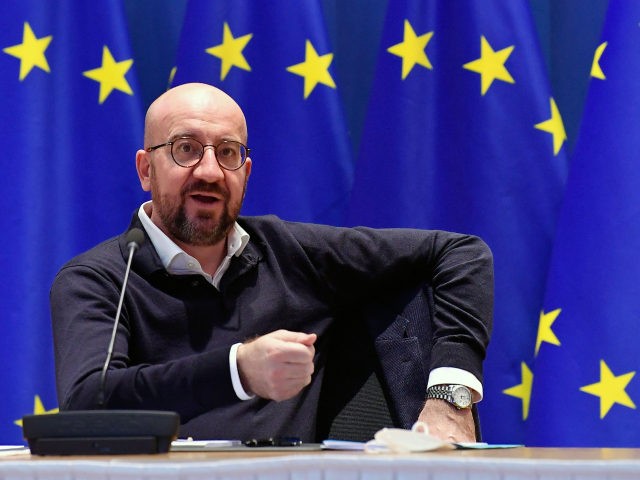The EU was forced to admit that the United Kingdom had not imposed a vaccine export ban, after earlier accusing the British government of blocking exports.
On Tuesday, European Council President Charles Michel had claimed Britain had “imposed an outright ban on the export of vaccines”. Brussels itself can enact export controls to stop the export of vaccines from the bloc even if produced under contract for a non-EU country.
Downing Street had called for an apology and retraction. A European Commission spokesman told The Guardian on Thursday that the EU’s powerful executive arm accepted the allegations Britain was banning vaccine exports were not true.
“We know that different countries have got different measures in place – that doesn’t concern vaccines, as far as we understand, coming from the UK,” the spokesman said.
Mr Michel’s remarks forced British Prime Minister Boris Johnson to challenge the claims, saying on Wednesday: “We have not blocked a single export of a single Covid- 19 vaccine, or vaccine components. This pandemic has put us all on the same side in the battle for global health. We oppose vaccine nationalism of all forms.”
The prime minister added that the government had already donated £548 million to the international coronavirus response programme, Covax.
Foreign Secretary Dominic Raab also called the accusations “completely false”.
Blair Blames Brexit… for EU Vaccine Fiasco https://t.co/M3ShTwVnCH
— Breitbart London (@BreitbartLondon) March 11, 2021
However, Michel had demanded on Wednesday to know how many vaccines the UK, no longer part of the EU, had exported, bitterly complaining to POLITICO: “It’s unfair to attack the European Union on this topic, saying that we would choose vaccination nationalism or protectionism. This is not the truth. The facts are the facts. At a certain point, it’s my call for more transparency. How many doses did they export?”
Last week, Italy became the first EU country to act on the power to block a shipment of vaccines to Australia, with Brussels agreeing with the move. France later said it might do the same if it deems drug producers had failed to deliver on their European orders. European Commission President Ursula von der Leyen said this week that the ban “was not a one-off”.
While Australian Prime Minister Scott Morrison was sympathetic to the Italians, the antipodean nation’s finance minister, Simon Birmingham, appeared to criticise the bloc for “tear[ing] up the rule book” with British think tank the Adam Smith Institute condemning the EU for “nationalistic behaviour”.
The row is the latest in a series of spats regarding vaccine production in the EU and Brexit Britain. Brussels, which demanded the takeover of vaccine procurement for the entire EU27, attempted to blame Brexit Britain and pharmaceutical companies in January for the delays to EU vaccine production.
However, AstraZeneca revealed that Brussels bureaucracy and Britain’s speed in signing contracts meant that they had secured an agreement with the UK three months before the EU, meaning British drugs production was ahead.
‘Not a One-Off’: EU Chiefs Warns Bloc Will Block More Vaccine Exports, Accuses Britain of Doing Same https://t.co/91rDhRwWhv
— Breitbart London (@BreitbartLondon) March 10, 2021
This week, Europhile former Prime Minister Tony Blair blamed Brexit for the EU’s vaccine failures. Blair claimed that if the UK were still in the bloc, it would have saved the other EU27 from the Commission’s demands to take over vaccine procurement.
“If we British were still in the EU, the procurement of the vaccine would not have been taken out of the hands of the nation-states. Any British government would have insisted on that.
“That is the only reason why Europe is now ten weeks behind,” Blair said.
Despite Brexit Britain’s vaccine success, of which Mr Blair has recently become a beneficiary, the Remainer claimed that no government should manage its own pandemic strategy and that it should be managed globally, particularly with regards to “how we distribute the vaccine to everyone”.
Exclusive: Vaccine Passports Will Lead to Algorithmic Discrimination, Warns Privacy Firm CEO https://t.co/08qeIF0s60
— Breitbart London (@BreitbartLondon) March 9, 2021

COMMENTS
Please let us know if you're having issues with commenting.